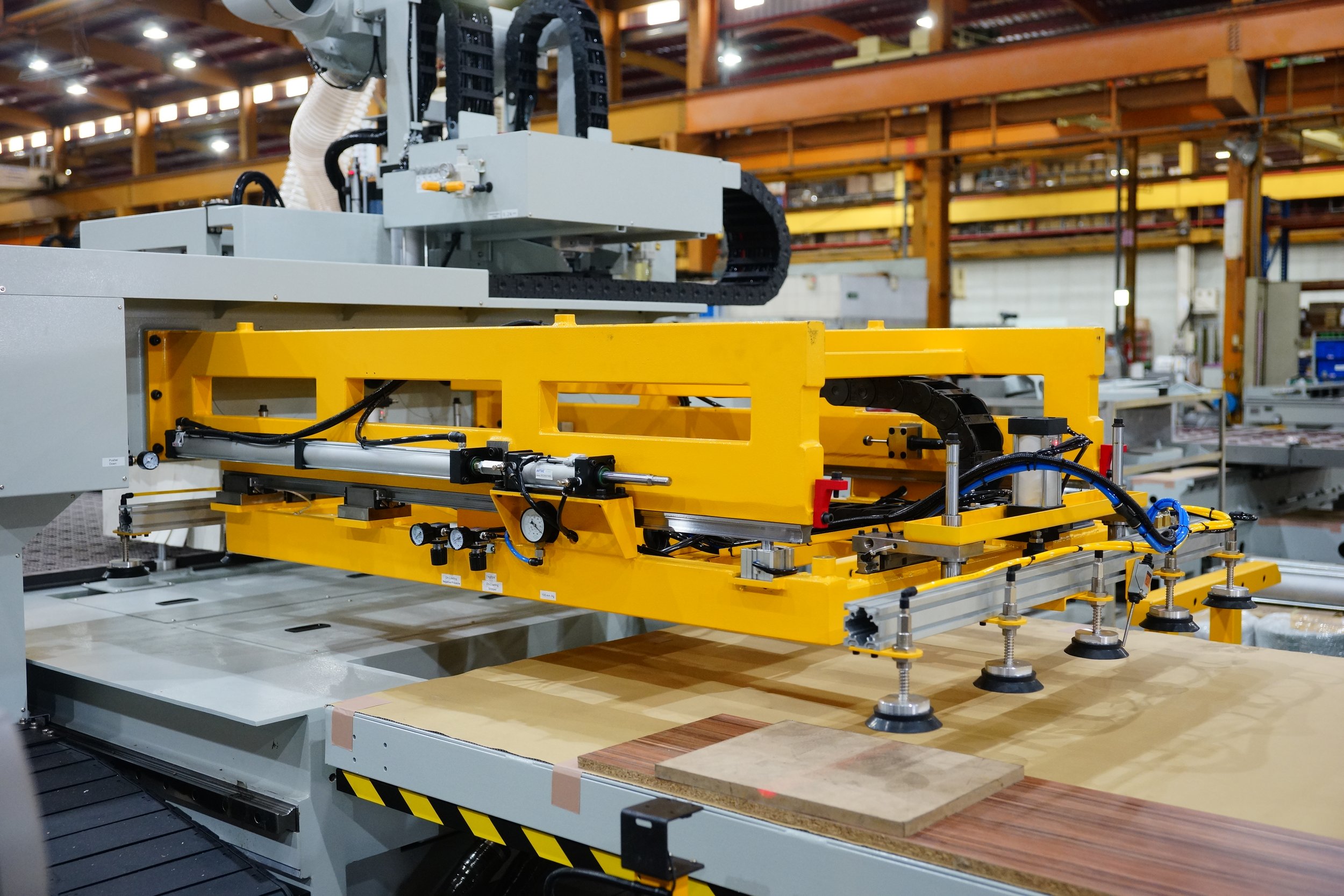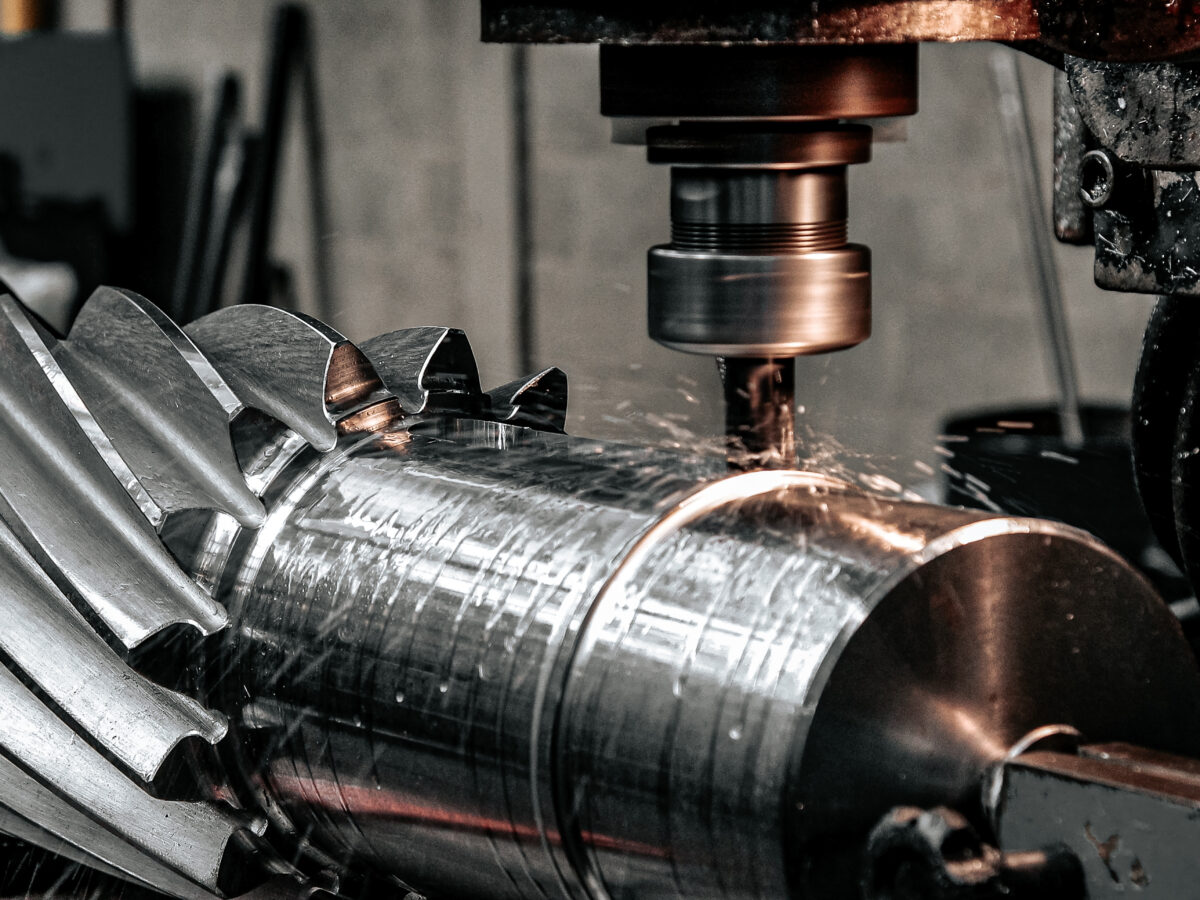Boost Your Manufacturing High Quality With Specialist CNC Machining Services in Milling and Transforming
CNC machining solutions in milling and turning offer substantial benefits for making procedures. These procedures ensure accuracy and effectiveness, essential for creating high-quality components. With advanced technology and proficient machinists, organizations can attain detailed designs and remarkable coatings. Nevertheless, understanding the subtleties of these solutions is vital for maximizing their benefits. What aspects should business think about when selecting the ideal CNC machining partner?
Recognizing CNC Machining and Its Benefits
Numerous manufacturing procedures exist, CNC machining stands out due to its precision and performance. This innovative production method uses computer-controlled makers to produce complex get rid of very little human intervention. By automating the machining procedure, it substantially decreases the probability of human mistake, making sure consistent high quality across manufacturing runs
CNC machining provides many benefits that appeal to numerous industries. To start with, it suits complex designs that traditional methods might have a hard time to accomplish. In addition, the rate of manufacturing is improved, permitting for quicker turnaround times and increased outcome. Furthermore, CNC machining is versatile, suitable for a vast array of materials, consisting of compounds, plastics, and metals.
The procedure permits for easy changes, making it possible for fast prototyping and modification without substantial retooling. Therefore, services can respond swiftly to market demands, making CNC machining an essential component of modern production techniques.

The Value of Accuracy in Milling Processes
Precision is crucial in grating processes, as it straight influences the precision of the final product. The selection of materials likewise plays a considerable function, influencing exactly how well the machining process satisfies specified resistance requirements. Recognizing these components is crucial for accomplishing ideal outcomes in CNC machining.
Duty of Precision
Attaining high degrees of accuracy is crucial in crushing processes, as also the smallest inconsistency can cause significant mistakes in the final product. Accuracy in CNC machining directly influences the efficiency, performance, and long life of the manufactured elements. Accurate grating guarantees that measurements and tolerances are satisfied, which is essential for parts that need to fit with each other perfectly in setting up or run under particular conditions. Furthermore, the duty of precision prolongs to decreasing waste and remodel, thus boosting general manufacturing efficiency. Advanced CNC devices outfitted with innovative software application and tooling add to achieving the necessary accuracy. By prioritizing accuracy in milling, manufacturers can assure top notch outcomes that meet stringent industry standards and client expectations.

Product Option Influence
Product selection plays a crucial function in the milling procedure, influencing both the top quality of the end product and the effectiveness of manufacturing. Various materials display unique residential or commercial properties such as firmness, tensile toughness, and machinability, which directly affect the milling strategy employed. Harder products may call for customized devices and slower feed rates to protect against device wear and maintain precision. Alternatively, softer products can be milled at greater rates but might lack sturdiness. Additionally, the choice of material can impact surface coating and dimensional precision, demanding careful consideration by manufacturers. Eventually, choosing the suitable material not just enhances item performance but additionally optimizes the milling process, lowering waste and boosting overall productivity.
Resistance Requirements Relevance
While the selection of products is important, adherence to tolerance criteria is equally crucial in CNC machining processes. Resistance criteria determine the permitted limitations of variation in dimensions, making sure components fit and work correctly. In milling and turning procedures, exact tolerances boost product top quality, decrease waste, and reduce rework. When resistances are accurately kept, suppliers can attain regular outcomes, which is crucial for industries such as aerospace, vehicle, and medical gadgets, where precision is paramount. Discrepancies from established standards can bring about setting up problems, endangered efficiency, and enhanced costs. Understanding and implementing proper resistance criteria is fundamental for any kind of CNC machining service seeking to maintain high production high quality and fulfill customer specifications properly.
Enhancing Performance Via Advanced CNC Turning
Advanced CNC turning methods substantially boost efficiency in component development by making sure high accuracy in production. This increased accuracy not only boosts the overall quality of the parts generated yet additionally adds to lowered manufacturing time. As an outcome, suppliers can achieve better outcome while keeping rigid high quality requirements.
Precision in Part Creation
CNC turning technology has actually revolutionized accuracy in component creation, enabling makers to achieve outstanding precision and efficiency. Utilizing computer-controlled lathes, this advanced process carefully forms materials right into complex designs, making sure limited resistances that meet demanding requirements. The automation inherent in CNC turning decreases human error, causing continually premium elements tailored to certain needs. On top of that, the capability to rapidly change electronic styles permits for fast models, boosting the customization of components without giving up accuracy. As a result, industries ranging from aerospace to automobile advantage greatly from these improvements, as they can generate complicated geometries easily. Eventually, CNC transforming stands as a cornerstone of modern manufacturing, driving precision and integrity in part production.
Decreased Production Time

Secret Technologies in CNC Machining
Many essential technologies drive the performance and accuracy of CNC machining, enabling producers to generate find out intricate components with high precision. Central to these developments are Computer Aided Design (CAD) and Computer System Helped Manufacturing (WEBCAM) software, which streamline the design-to-production procedure. CAD enables detailed styles to be produced and adjusted digitally, while web cam translates these layouts into equipment directions.
Further improving precision are multi-axis machining facilities, which enable reducing tools to move along numerous axes simultaneously, reducing the requirement for numerous setups - fast prototyping. Additionally, advancements in tooling materials and finishings have enhanced durability and performance, permitting better surface finishes and prolonged device life
Automation technologies, consisting of robotics and smart software application, facilitate real-time tracking and changes throughout production, making sure uniformity and high quality. Collectively, these innovations not just enhance production capacities however likewise add to the overall reliability of CNC machining solutions.
The Role of Competent Machinists in Quality Production
Competent machinists play an essential duty in making sure the top quality and precision of CNC machining manufacturing. Their know-how straight influences the end result of manufacturing procedures, as they interpret technical illustrations, established machines, and select appropriate tools for each job. By having a deep understanding of machining principles, they can make real-time modifications to maximize performance and preserve tight resistances.
Experienced machinists employ their problem-solving abilities to recognize and fix issues during manufacturing, ensuring and avoiding issues that the final products meet stringent top quality criteria (jig and fixture tooling). Their knowledge with numerous products and machining techniques allows them to adjust to varied job requirements, enhancing total performance
On top of that, these experts frequently collaborate with designers and developers, supplying important insights that add to the constant improvement of manufacturing techniques. Ultimately, the significance of knowledgeable machinists in CNC machining can not be overemphasized, as they form the foundation of top notch manufacturing procedures.
Reducing Waste and Optimizing Resources
Efficient CNC machining not just relies on the proficiency of proficient machinists but likewise stresses the importance of decreasing waste and maximizing sources throughout the manufacturing process. By using advanced innovations and exact shows, manufacturers can reduce product waste, making certain that every piece of basic material is used successfully.
Including strategies such as nesting, where parts are organized to make best use of material usage, can notably decrease scrap production. Furthermore, real-time tracking of maker efficiency permits for prompt adjustments, preventing overproduction and resource depletion.
Additionally, carrying out lasting methods, such as reusing metal shavings and making use of eco-friendly materials, contributes to both expense financial savings and environmental duty.
Via these actions, CNC machining solutions can improve efficiency while preserving top quality standards, ultimately leading to an extra lucrative and sustainable procedure. By prioritizing resource optimization, organizations can attain higher efficiency and a reduced ecological footprint in their production procedures.
Choosing the Right CNC Machining Solution for Your Requirements
How does one establish the ideal CNC machining service for specific job requirements? Picking the proper CNC machining service entails a number of critical factors to consider. First, task specs, including product kinds, dimensions, and resistances, should be plainly defined. This guarantees that the selected solution can meet the technical needs of the project.
Second, examining the provider's expertise and experience in the appropriate sector can provide insights right into their capacities. Analyzing previous tasks and client reviews can better educate the decision.
Third, assessing check these guys out the readily available modern technology and machinery is vital, as innovative tools often results in greater accuracy and performance.
Cost and turnaround time should be considered to guarantee the service aligns with budgetary restrictions and due websites dates. By very carefully assessing these variables, organizations can recognize the CNC machining solution that ideal fits their one-of-a-kind manufacturing requirements.
Often Asked Concerns
What Materials Can Be Used in CNC Machining?
CNC machining can utilize a variety of products consisting of metals like titanium, steel, and aluminum, as well as plastics such as acrylic and nylon, and compounds, supplying adaptability for different manufacturing applications and industries.
How much time Does a Common CNC Machining Project Take?
A normal CNC machining job can take anywhere from a couple of days to several weeks, depending on variables such as complexity, material type, style specifications, and production volume. Timelines vary based on task demands and urgency.
Are CNC Machining Services Eco-friendly?
CNC machining services can be eco-friendly, especially when utilizing reliable processes and lasting materials. Waste decrease and energy-efficient machinery add to a lower ecological effect, making these services a feasible option for eco-conscious manufacturing.
What Industries Typically Make Use Of CNC Machining Solutions?
CNC machining solutions are typically made use of in different sectors, including vehicle, aerospace, electronics, clinical tools, and manufacturing. These fields rely upon accuracy machining for components that need high precision, efficiency, and repeatability in manufacturing procedures.
Exactly How Can I Prepare My Layouts for CNC Machining?
To prepare designs for CNC machining, one ought to assure proper data layouts, optimize dimensions for resistance, include required machining functions, and take into consideration material properties. Additionally, giving detailed paperwork can boost the manufacturing process's effectiveness and precision.
While the choice of materials is vital, adherence to resistance criteria is equally vital in CNC machining procedures. Skilled machinists play an important function in making certain the top quality and precision of CNC machining production. A common CNC machining job can take anywhere from a few days to a number of weeks, depending on aspects such as intricacy, product type, layout specifications, and production quantity. CNC machining services can be environmentally friendly, particularly when utilizing lasting materials and effective processes. To prepare designs for CNC machining, one must ensure appropriate data styles, optimize dimensions for tolerance, incorporate necessary machining functions, and think about material properties.